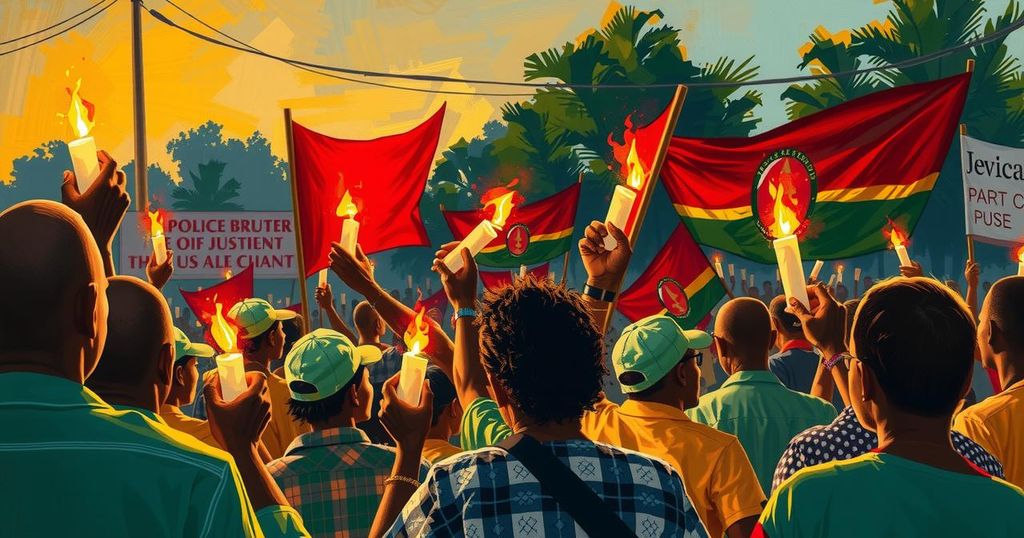Kenya to Charge Police Officers with Murder Over Blogger’s Death in Custody

Kenyan prosecutors have approved murder charges against six suspects, including three police officers, connected to the death of political blogger Albert Ojwang while in custody. His death has sparked significant protests against police brutality and has raised questions regarding accountability within the force.
Kenya’s Office of the Director of Public Prosecutions made a significant announcement on Monday, revealing approval of murder charges against six individuals connected to the death of Albert Ojwang, a 31-year-old political blogger. Among those charged are three police officers, including the commander of the station where Ojwang was held. These individuals are expected to appear in court on Tuesday, though it’s unclear if any have legal representation.
Ojwang’s death earlier this month prompted widespread outrage across the nation. He was arrested amid an investigation initiated by Deputy National Police Chief Eliud Lagat, who alleged that Ojwang had published false information about him on social media. Initially, police suggested that Ojwang’s death was a suicide. However, after an autopsy revealed that his injuries were due to assault, they had to retract their statements.
In the wake of his death, protests erupted across Kenya, highlighting issues surrounding police brutality. The public outcry has been significant, and more demonstrations are planned for Wednesday, coinciding with the anniversary of a prior protest that resulted in deaths from police gunfire. Activists have criticized the prosecution for seemingly charging only lower-ranking officers, expressing concerns of a potential cover-up.
Lagat has temporarily stepped down from his position to facilitate the investigation into Ojwang’s death, maintaining that he acted appropriately. In a striking revelation, officer James Mukhwana, one of those charged with murder, testified that his superiors instructed him to handle Ojwang roughly upon his arrival at the station, indicating troubling orders from higher-up authorities.
Attempts by Reuters to contact Lagat for comment were unsuccessful, and the National Police Service declined to speak on his behalf. The situation remains fluid as the judicial process unfolds and as public awareness grows regarding police accountability in Kenya.
The Kenyan government’s move to charge six individuals, including police officers, with murder in the case of Albert Ojwang’s death signifies a critical response to public demands for accountability. Activists express concern about the focus on low-ranking officers, suspecting a larger cover-up. With ongoing protests and a heightened awareness around police brutality, the scrutiny on law enforcement practices in Kenya suggests a pivotal moment for systemic change.
Original Source: www.yahoo.com







